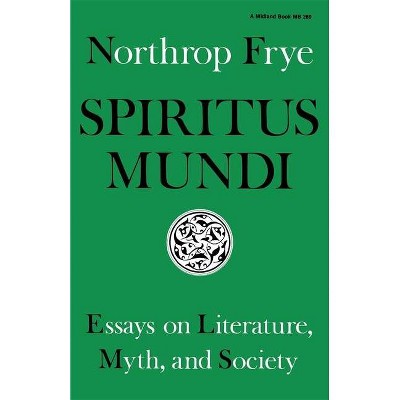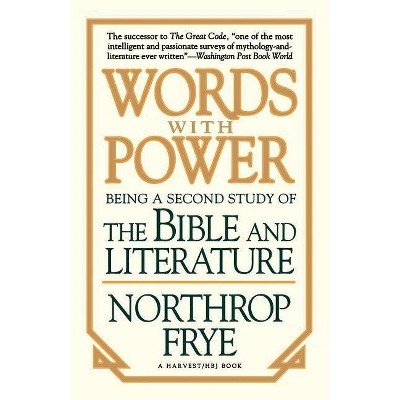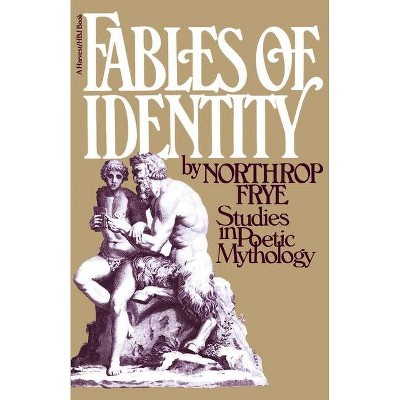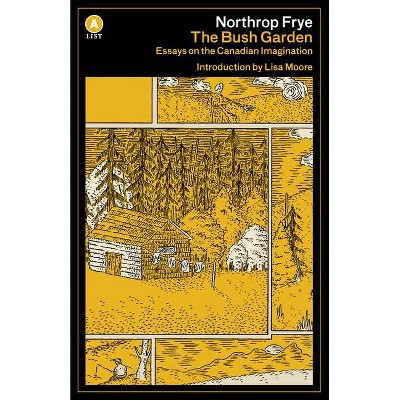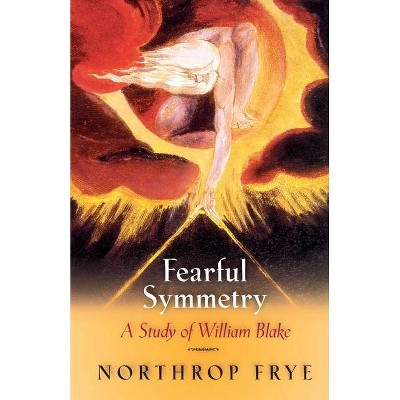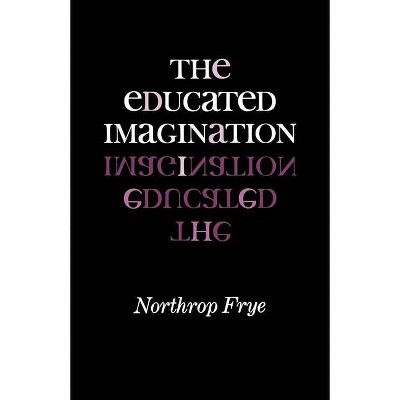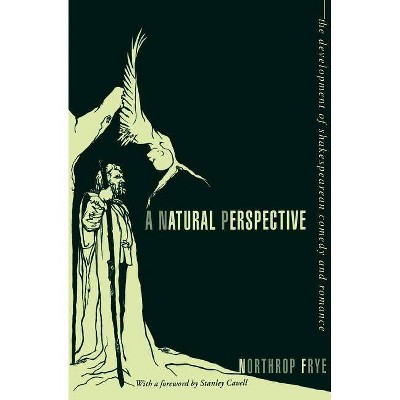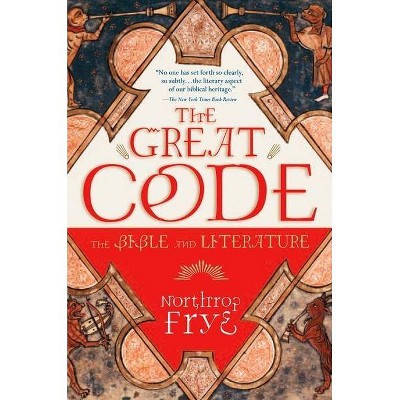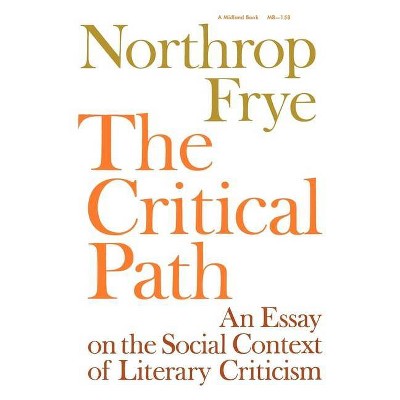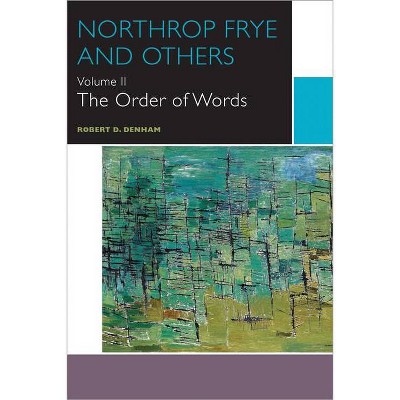Anatomy of Criticism - by Northrop Frye (Paperback)
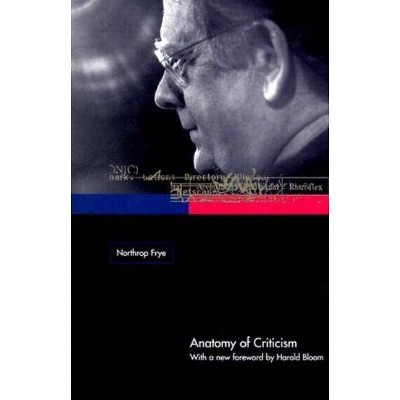
Similar Products
Products of same category from the store
AllProduct info
<p/><br></br><p><b> About the Book </b></p></br></br>Striking out at the conception of criticism as mere opinion or ritual gesture, Northrop Frye wrote this work on the assumption that criticism is a structure of thought and knowledge in its own right. In four essays on historical, ethical, archetypical, and rhetorical criticism, Frye reconceives literary criticism as a total history rather than a linear progression through time.<p/><br></br><p><b> Book Synopsis </b></p></br></br><p>Striking out at the conception of criticism as restricted to mere opinion or ritual gesture, Northrop Frye wrote this magisterial work proceeding on the assumption that criticism is a structure of thought and knowledge in its own right. In four brilliant essays on historical, ethical, archetypical, and rhetorical criticism, employing examples of world literature from ancient times to the present, Frye reconceived literary criticism as a total history rather than a linear progression through time. <p/>Literature, Frye wrote, is the place where our imaginations find the ideal that they try to pass on to belief and action, where they find the vision which is the source of both the dignity and the joy of life. And the critical study of literature provides a basic way to produce, out of the society we have to live in, a vision of the society we want to live in. <p/>Harold Bloom contributes a fascinating and highly personal preface that examines Frye's mode of criticism and thought (as opposed to Frye's criticism itself) as being indispensable in the modern literary world.</p><p/><br></br><p><b> From the Back Cover </b></p></br></br>Striking out at the conception of criticism as restricted to mere opinion or ritual gesture, Northrop Frye wrote this magisterial work proceeding on the assumption that criticism is a structure of thought and knowledge in its own right. In four brilliant essays on historical, ethical, archetypical, and rhetorical criticism, employing examples of world literature from ancient times to the present, Frye reconceived literary criticism as a total history rather than a linear progression through time.<P>Literature, Frye wrote, is "the place where our imaginations find the ideal that they try to pass on to belief and action, where they find the vision which is the source of both the dignity and the joy of life". And the critical study of literature provides a basic way "to produce, out of the society we have to live in, a vision of the society we want to live in".<P>Harold Bloom contributes a fascinating and highly personal foreword that examines Frye's mode of criticism and thought (as opposed to Frye's criticism itself) as being indispensable in the modern literary world.<p/><br></br><p><b> Review Quotes </b></p></br></br><br>An attempt to give a synoptic view of the scope, theory, principles, and techniques of literary criticism. . . . The book is continuously informed by original and incisive thought, by fine perception, and by striking observations upon literature in general and upon particular works.-- "Modern Language Review"<br><br>Does literary criticism need a conceptual universe of its own? Professor Frye has written a brilliantly suggestive and encyclopedically erudite book to prove that it does; and he has done his impressive best to provide a framework for this universe. His book is a signal achievement; it is tight, hard, paradoxical, and genuinely witty. . . . [Professor Frye] is the most exciting critic around; I do not think he is capable of writing a page which does not offer some sort of intellectual reward.-- "Hudson Review"<br><br>Simply overpowering in the originality of its main concepts, and dazzling in the brilliance of its applications of them. Here is a book fundamental enough to be entitled <i>Principia Critica</i>.-- "Commonweal"<br><br>This is a brilliant but bristling book, an important though thoroughly controversial attempt to establish order in a disorderly field.... Mr. Frye has wit, style, audacity, immense learning, a gift for opening up new and unexpected perspectives in the study of literature.... It would be hopeless to attempt a brief summary of Mr. Frye's dazzlingly counterpointed classifications.-- "The Nation"<br><p/><br></br><p><b> About the Author </b></p></br></br><b>Northrop Frye</b> was University Professor in the University of Toronto and Professor of English in Victoria College, University of Toronto. His books include <i>Fearful Symmetry: A Study of William Blake</i> (Princeton).
Price History
Cheapest price in the interval: 28.49 on October 27, 2021
Most expensive price in the interval: 28.49 on November 8, 2021
Price Archive shows prices from various stores, lets you see history and find the cheapest. There is no actual sale on the website. For all support, inquiry and suggestion messagescommunication@pricearchive.us
